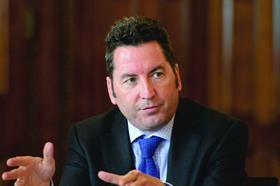Back in June, the Solicitors Regulation Authority published a report on unbundled legal services. This followed a pilot scheme, relating to family law, which involved a survey of over 100 law firms. The SRA did not stop there. Rather, it is contemplating a campaign to promote the practice.

In response, the Law Society has now invited its members to share their experience by 17 November of carrying out unbundled work. It plans to hold a roundtable in the new year to gather more views.
The Society is not at all gung-ho about unbundling. Indeed, it has raised concerns about the risks faced by solicitors offering such services. It believes that offering these services could affect solicitors’ ability to obtain professional indemnity insurance and that premiums could rise substantially because of the risk of a claim if a client makes an error on one of the unbundled tasks.
So, what is unbundling? This is not a facetious question, as 40% of respondents to the SRA’s survey professed ignorance. Helpfully, the Society has come up with a definition. It says that unbundling describes provision of discrete acts of legal assistance under a limited retainer, rather than a traditional full retainer where a solicitor typically deals with all matters anticipated from initial instructions until the case is concluded.
A good example of unbundling in the context of family law (though one that ended in a negligence claim) is to be found in Minkin v Lesley Landsberg (Practising as Barnet Family Law) [2015] EWCA Civ 1152. This considered the extent of the duty owed by a solicitor to draft, as a discrete service, a consent order covering the financial remedies settlement reached by the parties in negotiation. The appeal court upheld the decision of the trial judge, who found that the solicitor had only been instructed to draft the consent order and not to advise on its merits. In the circumstances, no broader duty was owed to the client.
However, before one gets too excited about this case, it has to be borne in mind that the claimant was ‘an intelligent woman who had qualified and practised as a chartered accountant’ and was well versed in the litigation. Had this not been the case, the outcome could have been altogether different.
Despite the fact that the SRA survey related to family law work, unbundling is not confined to such an area. A case in point is Sequence Properties Limited v Patel [2016] EWHC 1434 (Ch). Here, a litigant in person failed to serve an appeal bundle in time and was refused leave to appeal. The judge observed that the individual had had the assistance of a solicitor’s unbundled services. At the time this decision was hailed by some as the death knell for unbundling. Yet unbundling still goes on. Indeed, some firms have built their practices on it.
So, what can you do when faced with a client wanting unbundled services? Get a disclaimer signed? Lewis v Cunningtons Solicitors [2023] EWHC 822 (KB) was a negligence claim in relation to pensions advice on divorce. Here the defendant solicitor was simply instructed to prepare a draft consent order on the basis of the agreement a wife had reached with her husband. It did not include a pension- sharing provision where the pension itself was very valuable. The wife had signed a disclaimer acknowledging that she had not been given advice about the agreement as there had not been financial disclosure. The court found that this ‘one-size-fits-all’ disclaimer was inappropriate. The wife succeeded in her negligence action against her solicitor.
Fortunately, there are materials available in relation to unbundled work. One is a book entitled Unbundling Family Legal Services Toolkit by Ursula Rice and Mena Ruparel, published by the Law Society. The work covers the importance of getting the client retainer, or client care letter, right; extends to the taking of an accurate, contemporaneous written record of client meetings; and features a notice to terminate the retainer with the client.
There is another excellent resource, available for free. This is a Law Society Practice Note, dated 12 April 2022 entitled Unbundling civil legal services. Long it may be, but the note merits a careful read by anyone minded to offer legal services on a ‘pay-as-you-go’ or a ‘fixed-fee’ basis for discrete or separate pieces of work. The Lewis case post-dates the Practice Note and it could benefit from referring to it.
The Practice Note is extensive, and it is not my intention to summarise even its key points here. However, having read it, I think that it would be a very risky process to offer any unbundled service without seeing the client in person.
Personally, I am not a fan of unbundling. What I do realise is that it can be very easy to slip into this type of work if the client seeks to limit the retainer in any way. Therefore, we need to always get the scope of the retainer right from the outset.
It will be interesting to see what the Society’s roundtable comes up with in the new year.
Tony Roe is a family law partner, mediator and arbitrator at Dexter Montague LLP, Reading































3 Readers' comments